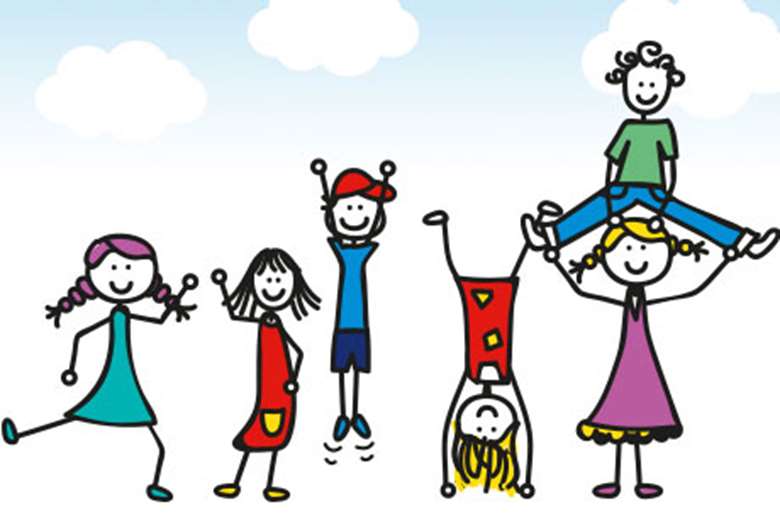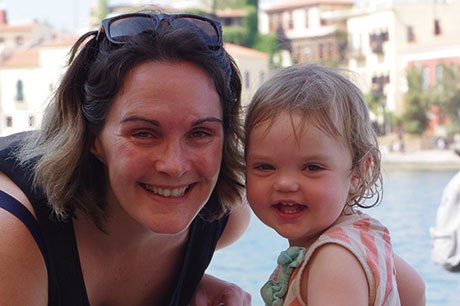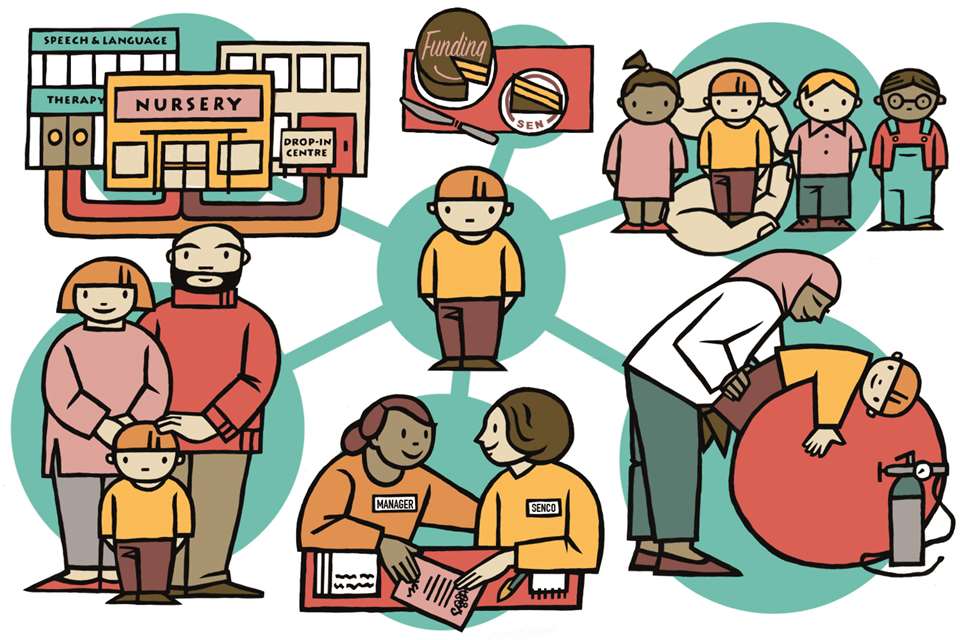Working with parents - A certain age
Charlotte Goddard
Monday, May 14, 2018
With more children being born to older mothers, it is important practitioners understand their unique needs, finds Charlotte Goddard in the first of an occasional series

Download the PDF of this article
When the actress Rachel Weisz recently revealed she is expecting a baby at the age of 48, she was the latest to join the fast-growing demographic of mothers over the age of 40. In 2015, the fertility rate of women aged 40 and above surpassed that of women aged under 20 for the first time since 1947, according to figures from the Office for National Statistics.
It is something that early years practitioners are noticing in their settings.
‘We have definitely seen an increase in the number of older mums,’ says Jo Morris, manager of Playsteps Day Nursery in Swindon.
Building relationships with parents is a key part of an early years practitioner’s job, explains Theresa Johnson, professional development manager at Pacey. ‘All parents have a unique set of needs, and my advice would be to start each relationship with a parent with a blank slate and an open mind,’ she says. ‘Sensitivity and professionalism mean not making assumptions about people.’
Particular challenges
While it is vital not to make assumptions about any parent, research shows that becoming a mother, particularly a first-time mother, later in life is not without its challenges.
Research shows that:
Older mothers, especially first-time mothers, are more likely to have gone through fertility treatment such as IVF, and to have experienced miscarriages.
They are also more likely to have twins or triplets, both through conceiving naturally and through IVF – IVF conceptions are 11 per cent more likely to result in a multiple birth.
Older mothers are more likely to experience complications during pregnancy such as obstetric shock or amniotic fluid entering the mother’s bloodstream.
It is well-known that the incidence of certain types of foetal anomaly such as Down syndrome increases with maternal age. An increased risk of autism has also been linked to older mothers.
Career-minded
First-time mothers over the age of 40 are more likely to come from a higher socio-economic group (see box). ‘We often find older mums have established careers, and some have said to me it is really important for them to go back to work, they want that balance,’ says Ms Morris. ‘Their children often do full days.’
Many older mothers cite their career as one of the benefits to motherhood later in life. Miranda Reid is 45 and her son Jake started nursery at six months.
‘The most significant benefit is security, both in my career and in my relationship,’ she says. ‘I have been married for a while. I don’t have the issues those just starting out would have.’
Support network
While early years practitioners may feel an older mother does not need signposting to support services, the opposite can be true. Older mothers themselves say one of the most significant challenges they face is the lack of a support network.
Their friends may have gone through the baby stage some time ago, and have older children. Grandparents may be older, with health issues of their own, or no longer around: although, as Ms Morris points out, they may also be more likely to be retired and thus more able to provide childcare.
‘We don’t have any help from family in terms of childcare, and I am also looking after my mother-in-law who is in her 80s,’ says Sarah Castell, mother of four-year-old Ivy and two-year-old Lois (see case study).
‘I would have had my own mum around if I had children earlier, but she died when I was in my 30s.’
Ms Reid set up her own group for local older mums after finding it hard to relate to younger mums in mother-and-baby groups. ‘People were talking about how easy it was to get pregnant, but for us it was difficult,’ she says. ‘My peers couldn’t advise on groups because they had had their baby a while back, and I felt reluctant to join stuff because I felt very aware of my age.’
Kimberlee Hanson, 49, is lone parent to four-year-old Leo who attends Crystal Early Years in Anerley, south London. She says her support needs are more to do with not being in a relationship than her age. ‘I had Leo through IVF, I was not in a relationship so just thought I have to do this on my own,’ she says. ‘One time I broke my wrist and had to have major surgery. The nursery were amazing, they said we’ll bathe him, we are here to help.’
Fertility journey
Mothers who have their first child later in life are more likely to have had a difficult time conceiving, but parents and settings have mixed views on how much this impacts on the relationship between parent, child and setting.
‘I think early years workers should be aware that there’s a higher chance someone will have had IVF, miscarriages, a chance they have gone through that kind of trauma,’ says Ms Reid. ‘I don’t mean this should be discussed on a daily basis, but there should be some awareness. For example, it would be a miracle if we had another child, so when people ask if you are having another, or talk about potential siblings, that can be hard.’
‘For me the biggest challenge is that Leo doesn’t have a daddy, and the nursery are very sensitive about that,’ says Ms Hanson. ‘For example, if they are making cards, they know I am both parents.’
Ms Morris says some parents choose to disclose their fertility journey and others do not.
‘It doesn’t change the way we look after a child, but it helps us to reassure the parent when you know they have really gone through a lot to become a mum,’ she says. ‘In one case the little one had health needs, they were very premature, and mum felt it was better if we knew the background.’
Relationships with nursery practitioners
Some 44 per cent of nursery staff are under the age of 25, according to the NDNA. Playsteps’ Ms Morris says building relationships with parents can be enhanced if a setting employs a range of ages. ‘We have always strived to have a cross-section of staff: some are in their early 20s, some in their late 50s,’ she says. ‘Parents seem especially pleased to see older staff in the baby room.’
Ms Reid’s son attends Bo-Peep Day Nursery in Southend. ‘He has one young key worker in her early 20s and also an older one, who I probably relate to more,’ she says. ‘But it is nice for him to have someone young and sprightly as well, doing things I feel like I can’t do so much any more.’
Ms Hanson says the workers at her nursery are young, but she is not bothered by this.
‘I have respect for them and like the fact they are young and have a fresh attitude in life,’ she says. ‘Sometimes we are both learning together.’
Parental approach
Some older parents say they can be over-anxious. ‘There is so much out there about how you can make your child safe that you get paranoid,’ says Ms Reid. ‘When it came to safety, I was getting everything that was going to make sure not a germ got near my son.’
‘There is a tendency among older mums to have ideas about what is wrong with how people bring up children nowadays,’ says Ms Castell. ‘When I was young, for example, there was no option to watch children’s TV in the mornings, it didn’t exist: if I were 12 years younger I might think, “Well, I did it so it’s fine.”’
Ms Hanson, however, thinks that her life experience has led her to be more laid-back.
‘I think I am less concerned about the little things,’ she says. ‘I know some younger parents who fret about Ofsted ratings, for example; but you know what? If my son is happy at nursery, that is fine for me.’
Case study: Sarah Castell, 43, mum to Ivy (4) and Lois (2)

‘I am further on in my career than I would have been if I had had children ten years ago, when I wanted to, so I am in a position where I can be more confident about obtaining flexible hours. The downside is I am knackered all the time.
‘My children were born through surrogacy, but while I didn’t physically give birth there was still the getting up and caring for the baby. I feel creaky in a way – I didn’t used to when I was younger, physically. Also, if you are more senior at work, there is greater pressure to be on the ball when you go back.
‘I sent Ivy to a Forest School nursery, Little Forest Folk, and I was impressed because it was run by a woman around my own age – I felt like it was set up for people like me by people like me. At other nurseries I looked at, the managers were very young.’
Babies in tummies
‘There’s almost a class/money aspect to being an older mum, because if you needed multiple rounds of IVF, you will be older when you have your child, but only those with a lot of money can afford that.
‘Ivy is likely to talk about surrogacy and the fact that she “grew up in someone else’s tummy”, or she might ask other children whether they were born from their mummy’s tummy or someone else’s, so that is something that the nursery practitioners might be aware of. She is very interested in babies in tummies.’
OLDER MUMS: STATISTICS
In 2016, 29,733 children were born to women aged 40 and older, a rise of 6,027 from 2006.
8,151 of those children were born to women who had had no previous live births (first-time mums).
3,129 babies were born to first-time mums aged 40 and over in the top socio-economic classes (higher management and professional) and 409 to first-time mums in the bottom socio-economic classes.
By comparison, 2,518 babies were born to first-time mums aged 20 to 24 in the top socio-economic classes, and 16,200 to first-time mums aged 20 to 24 in the bottom socio-economic classes.
Figures from ONS








